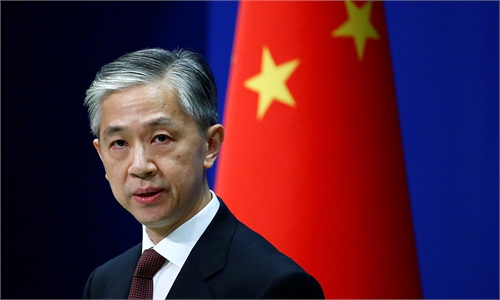Western ‘China debt trap’ propaganda a geopolitical tool, deliberately confusing truth

Illustration: Chen Xia/Global Times
The term "Chinese debt trap theory" is now a common complaint in development discourse. An example, given by Western media outlets, is the recent economic disaster in Sri Lanka. The US and its allies recently pointed their fingers at China claiming that developing countries are going bankrupt because of Chinese debt. So, the question is, does China really create debt traps for developing countries?
China is investing, using its own economic capabilities, in the Belt and Road Initiative (BRI). The BRI, which aims at building an open platform of cooperation, and providing new impetus for cooperation and development among countries, was put forward by China in 2013.
Critics say China has deliberately trapped Sri Lanka in debt and blame it for today's situation. However, reports show that China accounts for only 10 percent of Sri Lanka's debt burden, but China is being blamed for the 90 percent by Western countries. Apart from China, the Sri Lankan government has been borrowing from various international currency markets, the Asian Development Bank and Japan for a long time.
If you don't just listen to the West and do a little research, this China-centric noise seems to be very inconsequential. While much is heard about how China is acting as a "neo-colonial power" in the Western media, it is never heard in the same media about how China has waived its debt to poor countries, mostly in Africa. According to the Forbes on May 29, 2019, over the period 2000 to 2018, China has written off around $9.8 billion of debt to other countries.
On November 20, 2020, China's Finance Minister Liu Kun said China has extended debt relief to poor countries worth a combined $2.1 billion under the G20 framework. He added, the China International Development Cooperation Agency, the country's aid agency, and the Export-Import Bank of China, the official bilateral creditors, have suspended debt service payments from 23 countries worth a total of $1.353 billion. According to the Oxford China Africa Consultancy at Oxford University, Cuba received debt forgiveness worth $6 billion in 2011. Outside of Africa, other large cancellations include Pakistan ($500 million) and Cambodia ($490 million). On August 11, 2022, Chinese Foreign Ministry Spokesperson Wang Wenbin said that China attaches great importance to addressing debt vulnerability of developing countries and has fully implemented the G20 Debt Service Suspension Initiative. China ranks the first among G20 members in terms of deferral amount.
There are fundamental differences between Chinese debt relief, and debt relief from the US and its controlled global financial institutions. China does not involve itself in the internal political mechanism of any country outside the world. On the other hand, the US and its controlled global economic institutions work in the internal political-economic policy-making of aid-seeking countries in addition to lending. When it comes to lending, China follows the principles of extensive consultation, joint contribution and shared benefits. It can be said without a doubt that China's lending policy is essentially a win-win situation for developing countries.
Instead of colonialism, China provides "solidarity" between developing countries. Chinese financed physical infrastructure projects have become attractive to many developing countries' governments as an attractive alternative to the US-dominated World Bank and regional banks such as ADB. Propaganda about the "China debt trap" has emerged as a major weapon of geopolitical strategy. A Chinese loan can be a boon for the poor and developing countries of the third world. But the Western world is not very satisfied with this initiative.
The author is a doctoral fellow in the School of International Trade and Economics at Jiangxi University of Finance and Economics, senior research fellow at Daffodil International University Belt and Road Research Centre, and a Bangladeshi journalist based in China. opinion@globaltimes.com.cn


